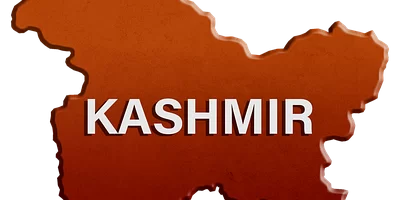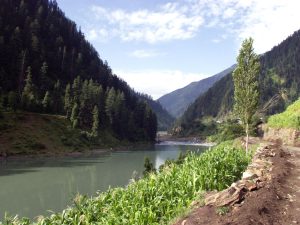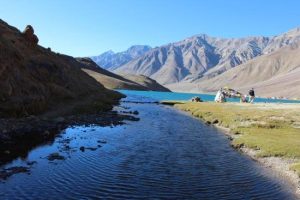Kashmir and its Vedic Connection
Kashmir lies between the Himalayan ranges and the Pir panjal range, it is the northernmost region of the Indian Subcontinent. According to Vedic etymology₁ “Kashmir” is formed from the sanskrit word ‘Ka’ meaning water and ‘shimira’ meaning the desiccated one. A very well known incident that happened whose reference we get in the various texts of India about rishi Kashyapa, who was the son of Marichi and grandson of Brahma. Famous historian Kalhana of the 12th century in his book Rajatarangini about the history of Kashmir describes that the valley of Kashmir was previously a lake which was drained by the great sage Kashyapa₂ by cutting the gap in the hills at Varaha-mulla (present day Baramulla) to make settlements for the Brahmins.
Kashmir had been a fervent place for spiritual cultivation amongst the seers. Ancient scriptures sings the many glories of the region. A.C Bhaktivedanta Swami Srila Prabhupada, founder acharya of Iskcon writes in one of the purport in Canto 5 of Srimad bhagavatam₃ that of the three divisions of heavenly planets (svarga-loka), bhauma-svarga is sometimes accepted as the tract of land in Bhärata-varsa known as Kashmir. Jhelum, Chenab,Poonch,Neelam, Tawi, Sindhu are the prominent ones which joins the Indus river system.
One such reference we get in the Mahabharata, wherein the glories of taking bathe in the rivers of Kashmir has been eulogized. In the Anusasana Parba Chapter 25 in Mahabharata there is a verse
|| Kashmirmandale nadyoh yah patanti mahanadam
ta nadih sindhumasnadya silavan svargamapnuyat || ₄
 Mahabharta, Anusasana Parva Chapter 25 pub-Gitapress , Gorakhpur⁴
Mahabharta, Anusasana Parva Chapter 25 pub-Gitapress , Gorakhpur⁴
The very many rivers that flows through Kashmir, falls into the great river called Sindhu (Indus). By bathing in these rivers one is sure to become endued with good character and to ascend to heaven after departing from this world.
These are the words of sage Angiras, as narrated by Bhishma dev while answering to the queries put forwarded by Yudhisthira Maharaj.
Bibliography
- https://en.wikipedia.org/wiki/History_of_Kashmir#Etymology
- Rajataranggini, Kalhana, Translated by Jogesh Chunder Dutt, London Tribuner & Co
- Srimad-Bhagavatam, A.C. Bhaktivedanta Swami Prabhupada, The Bhaktivedanta Book Trust, 2010, Canto 5, Chapter 17, Text 11,
- Mahabharata, Vyasadeva, Translator, Pandit Ramanarayana Dutta Sastri Pandey Rama, Gorakhpur Gita Press, Anusasana Parva, Chapter 25,Verse 8, p. 5559










